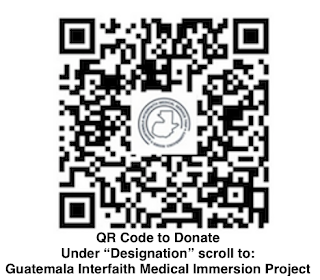The Same But Different
Kateri Dir-Munoz
I’m back again! A dream come true. With an official nursing license under my belt and about 10 more words of Spanish. It’s crazy being back in a place you were the year before, but now with a global pandemic. With people in the United States no longer taking precautions and things opening, to being here where only 4% of the population is vaccinated and the virus continues to rage. We are harshly reminded of the injustice of this virus and how the fight is far from over. If you are unable to quarantine because you live in a one room house with 7 people or can’t miss work because you need to feed your family, what are you supposed to do? In the United States we are working on convincing people to get vaccinated while we have more than enough to go around for our population. Whereas people that need it more than all of us combined have no access as countries continue to hold their supplies for themselves. I encourage us all to reflect on what this means. While you are at restaurants, hanging out in big groups and seeing your family. Remember those in other countries who are still afraid for their lives and their family and can’t see the end of this terrifying journey. Again like so many other times, the United States lives in ignorance to what is going on around us.
But at the same time while I am facing all these differences in states of the pandemic, I am reminded of similarities between our two communities and this disease. There are physical parts that come with the pandemic, but just as much there are emotional. Mental illness and trauma does not go away when physical illness emerges, but instead they become more evident. Leaving your routine, losing your family members, isolation, how can you cope with this on top of your physical health? And to put it in perspective how can you deal with these emotions when there aren’t antidepressants you can afford, or psychologists that you can talk to? The anxiety builds and the depression keeps you up at night. I will continue to advocate and remind others that mental health is just as important as physical and should be treated as such. It takes as many lives as any other illness. Please continue to check on your friends and family in this difficult time, because as I struggle for the words to comfort and communicate with these patients in Spanish, I know this knowledge is something that I can be aware of and take back to my own community and job as an adolescent psychiatric nurse.
Above all on this trip, I have been able to see the capacity building. With a local pediatrician, nurse and dentist, you could feel more than ever that we were a branch off the tree and not the trunk. Leaving the clinic on that last day felt sad for the reason that I wouldn’t be able to see these amazing people that I’m just completely in awe of for their talent passion and dedication to their community, but not sad that I don’t think they’re going to be able to get care that they need. What it means to do holistic care is at work in Ciudad de la Esperanza. Where social workers fighting sexual abuse, have offices next to teachers working with students to achieve their goals, while students from rural areas can live at the school to have education access all with a clinic to assess their basic needs. Truly a community clinic, where they know your family, your struggles and dreams. That’s how healthcare needs to be. All aspects of our life influence our health states, and should be treated as such. Communities need to take care of communities, because that’s how they truly understand each other and what they’re going through. I can’t wait to continue to see this role model of an environment grow, because every moment on the frontlines and from the sidelines has been an invaluable gift.


Comments
Post a Comment